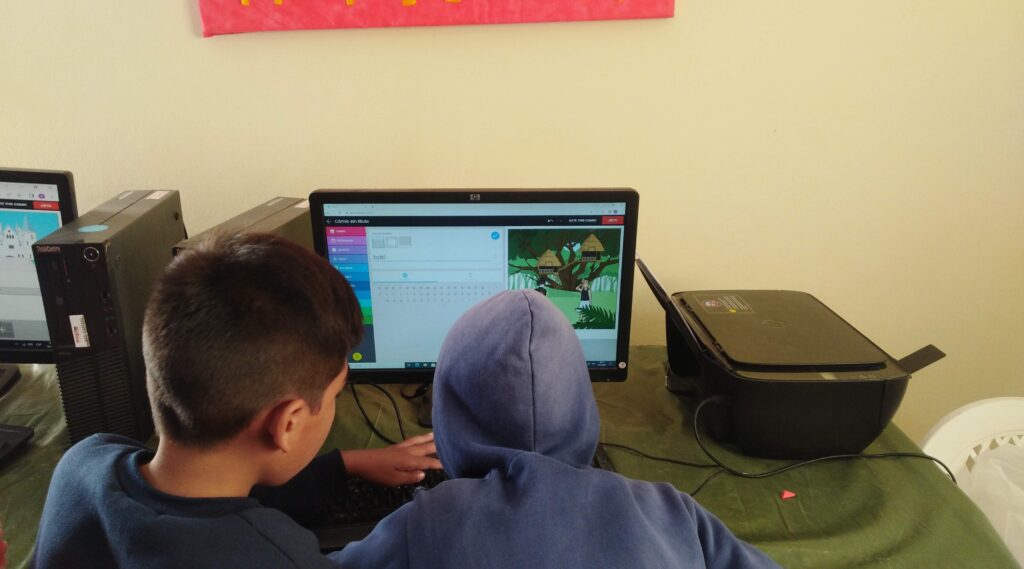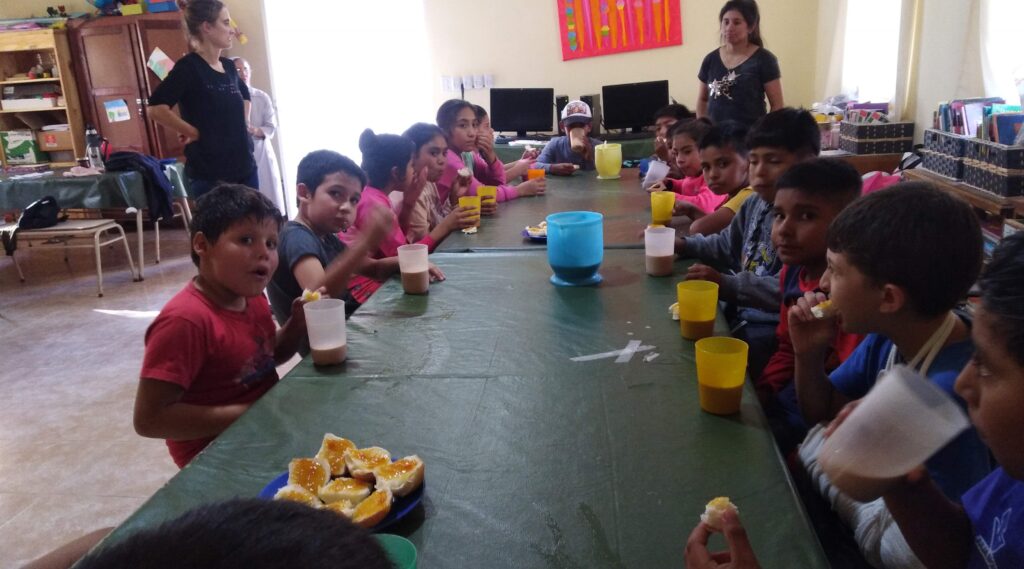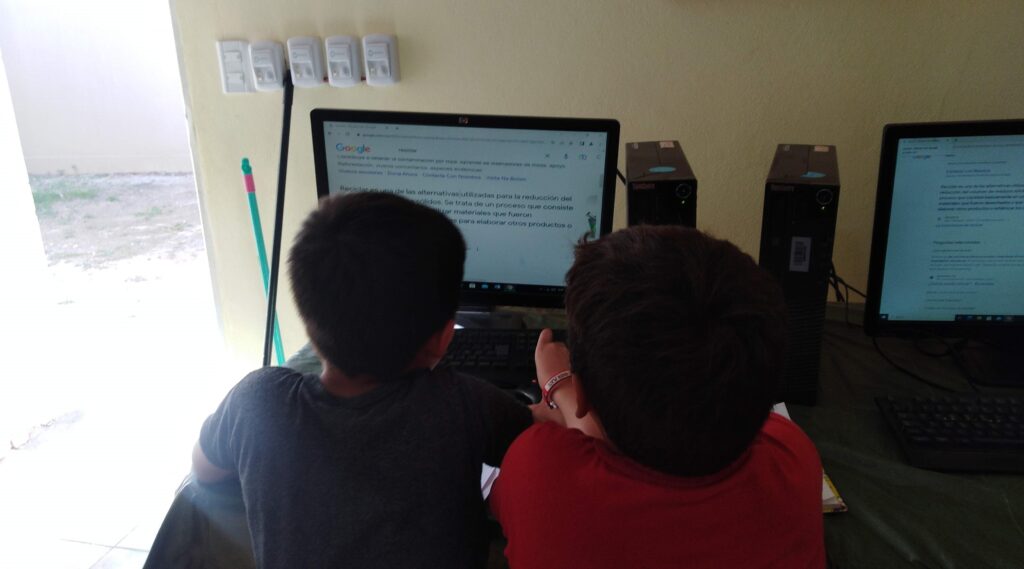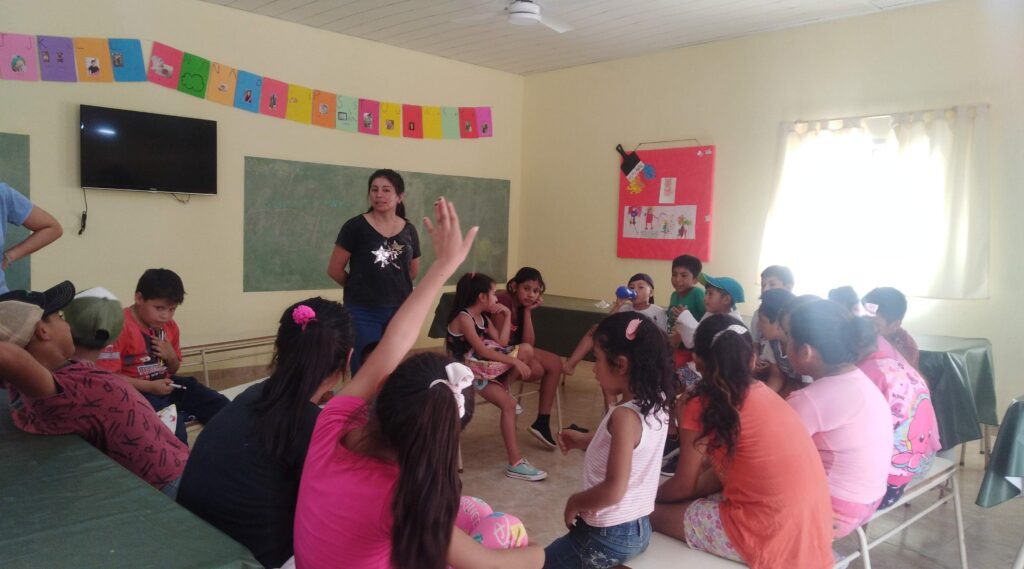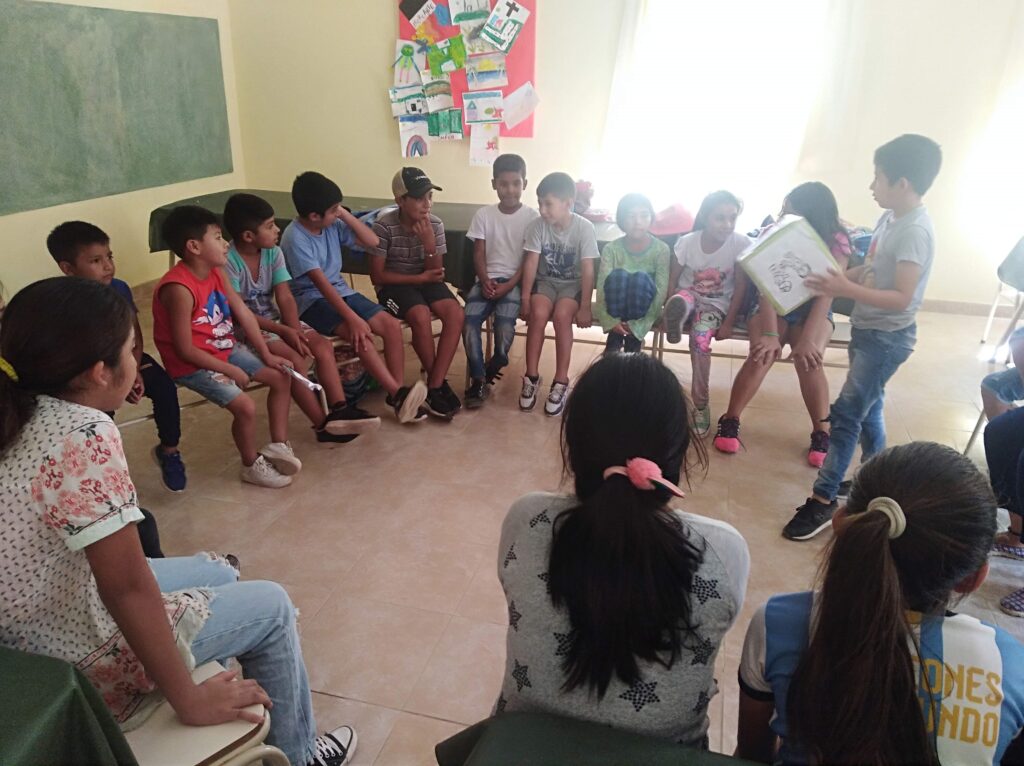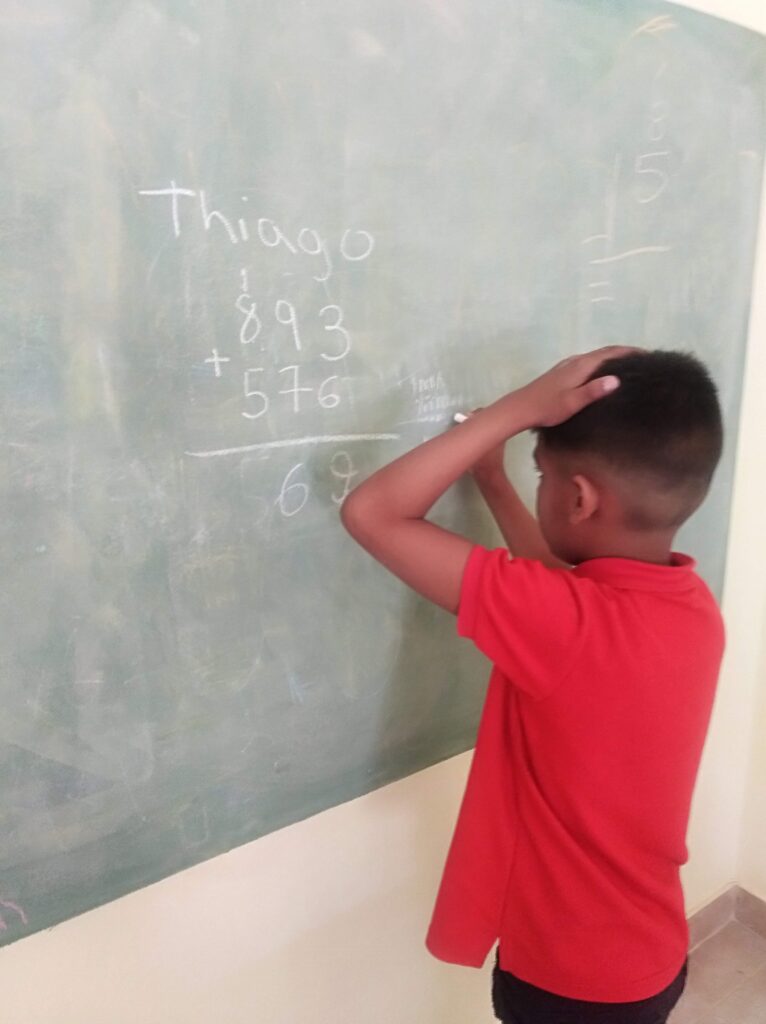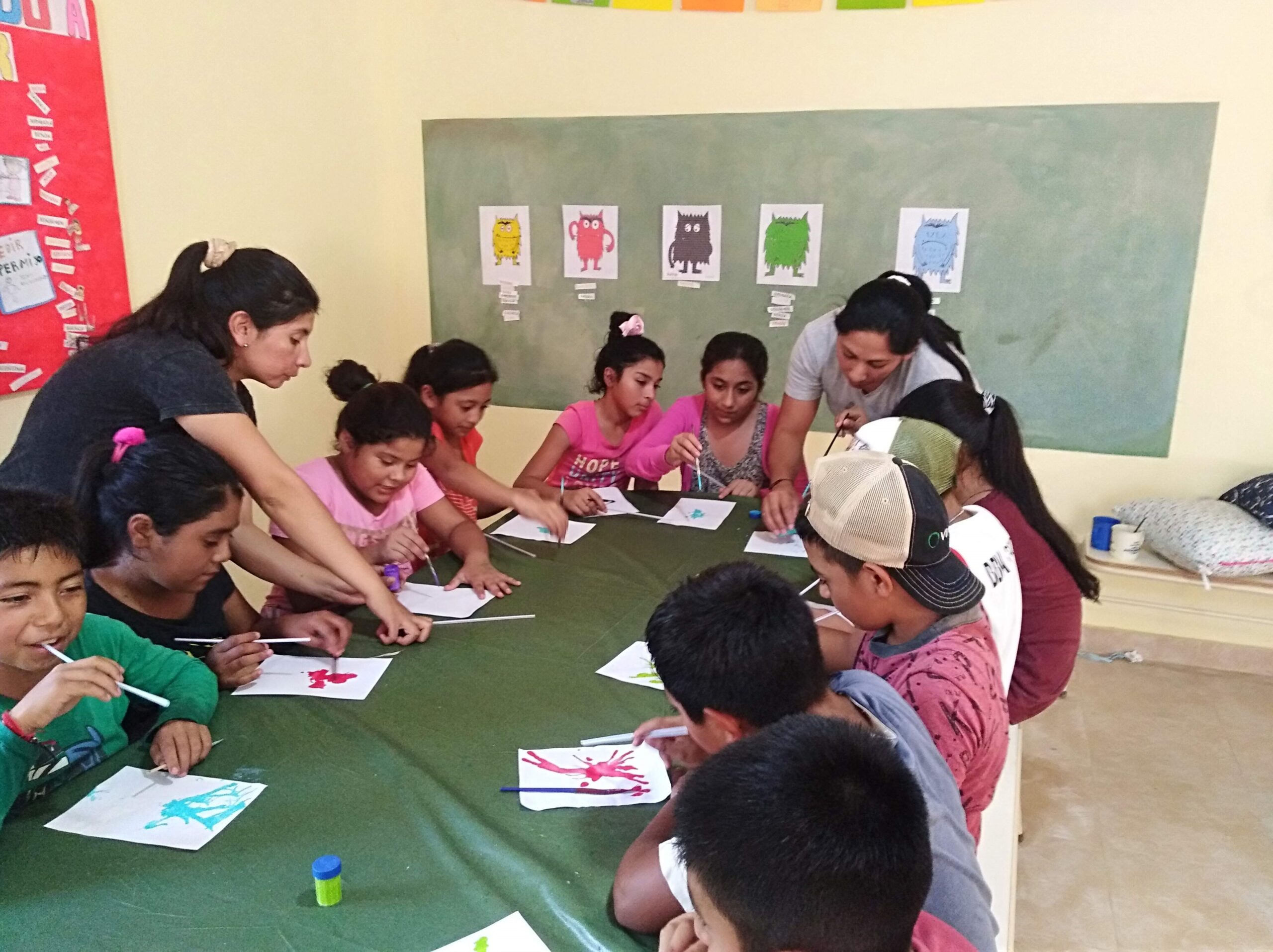
12 Jun Educating is an act of hope
In the time and space in which they lived, Saint Raphaela Mary, Mother Pillar and the first Handmaids
found the way, through education, to respond to the needs of reality.
Today, like them, we desire to respond to the hopes of humanity and to God’s dream
convinced that “education is a new creation” GC XXI
The certainty contained in this paragraph of the GCXXI leads me to look with affection at the work that God is doing in the different places of mission where we are, where the Eucharistic-reparative charism makes its way, where I find myself today: Santiago del Estero.
It has been 5 years since the sisters came to this place with the desire to respond to the cries of this people, of its people. One of them has been, from the beginning, education. There is a high level of illiteracy in this area. Many children finish primary school without knowing how to read and write due to multiple causes, from the state of the roads, weather conditions, the non-valuation of education by families, etc. This reality was notably accentuated, as in so many places, with the pandemic and has meant a very big challenge, which has given rise to the Complementary Integral Educational Center (C.E.I.C) Rafaela y Pilar, an initiative that began in 2022.
A truly transformative space has been implemented, where children learn and enjoy, and so do we. The meetings are 4 times a week against the school shift. Approximately 25 children from 6 to 13 years old attend, coming from different places in the area.
Every day we start the space with a different game in which we share “Something good that happened to him in the day and something bad” and end the day with the round of thanksgiving, where we breathe slowly, calm down, review the day and give thanks for something special. They are two sacred spaces, where we learn to listen to each other, to value what the other brings and to be grateful. To tell the beautiful, but also the ugly, in a society where the word costs so much. Children are letting go more and more and letting us enter their hearts.
Thursdays are days of stories, in which in addition to learning to write with meaning, in a collaborative way (many times the stories are written in 2 at a time), improving their writing and spelling, developing their creativity, it becomes a pleasant space, a gift, because through the proposed activities, without realizing it, they let us enter their inner world.
On Tuesdays we have a garden space, where children who have more difficulty with school activities attend, but who have great ability to work the land, cultivate it and take care of our plants. The harvest time is eagerly awaited, because with the fruits we collect, we cook something delicious that helps us to like the vegetable.
I can see that this experience of the center not only transforms the children who attend, but also the teachers who collaborate with us. A reality in this area is that the work of teachers is not always by vocation, but because for many, after high school, this is the only possibility of study (not everyone can travel 100 km to access university or other types of studies), so there are many teachers without work, and there are many neighbors who are teachers without liking to be. So I could see how, the support teacher, who was one of them, who had received something she did not like and who 5 years ago could not get a job, introducing herself to the pedagogy of the heart, knowing another way of teaching, of linking with the children, helped her discover her own vocation. The same of the art teacher, she is an artist but she had never seen herself educating. It is a gift to stop and watch the children enjoy and they do so well and enjoy what they do. Seeing them discover the richness of the pedagogy of the heart, the impact it has on children, as if we teach from the heart, with an integral look (not only worrying about the strictly school) children learn, they feel more secure, they are encouraged to give their word, to give their opinion, to think with others and this positively impacts their school performance.
Sofia Pombo, aci
